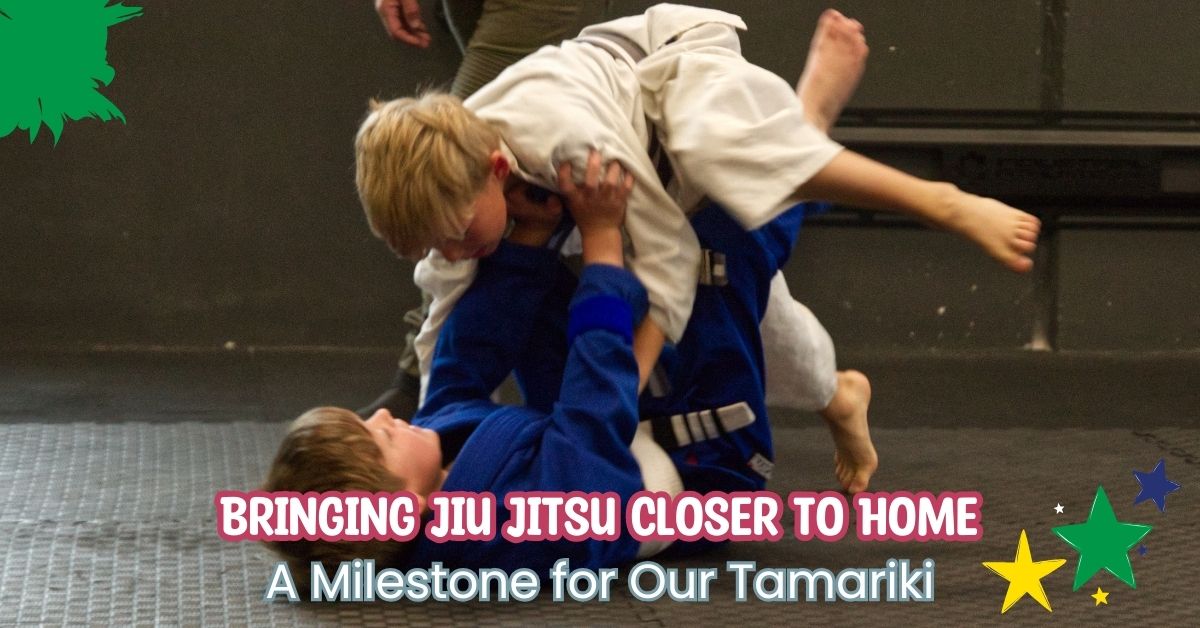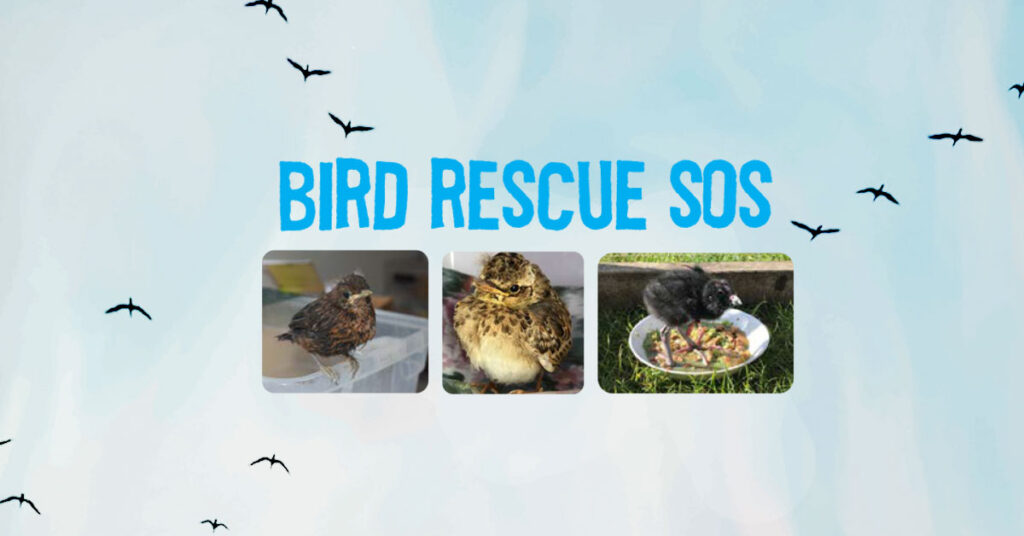
Baby Bird season has started even earlier this year! It’s always a busy time, not just for the birds, but for wildlife rehabilitators and veterinary clinics. During this time of year, birds are busy building nests, laying eggs and feeding hungry chicks.
So what if you find a baby bird? When does it need rescuing?
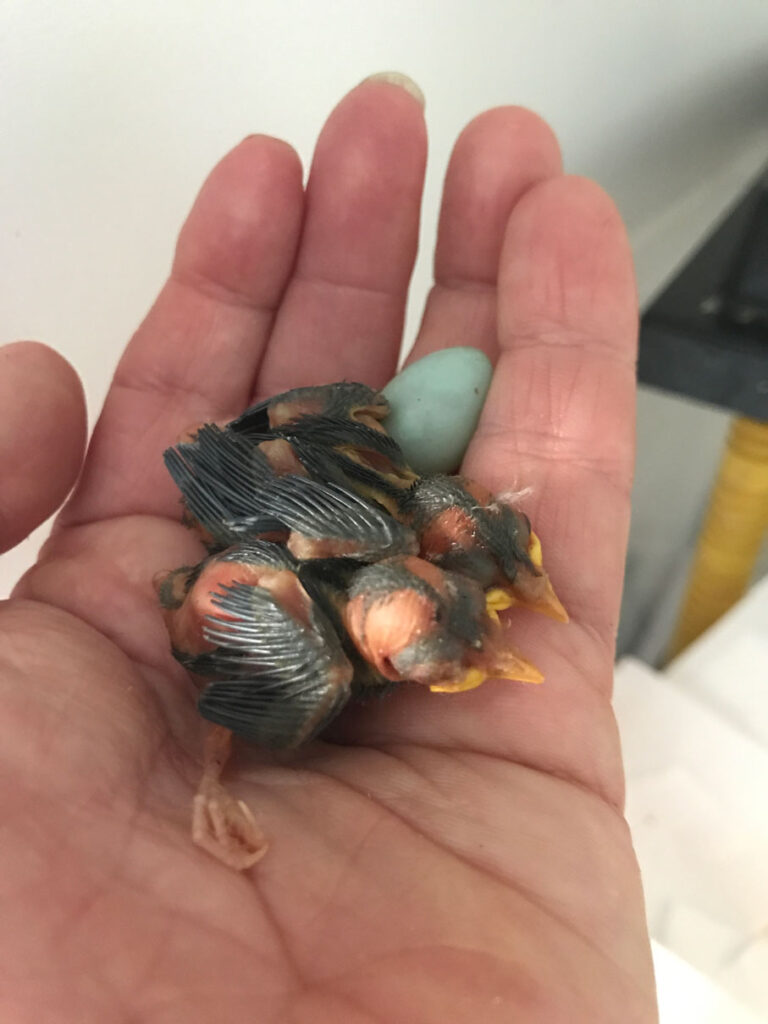
Hatchlings/Nestlings
These are baby birds with no feathers, or just a little down.
Wild and windy weather may cause birds’ nests to become dislodged and fall down.
Some best advice we can give:
If the babies seem fine and the nest can be restored, place it back in the tree and watch the parents come and feed them. Remember your presence may stop them from returning so stay a fair distance away. (Human scent isn’t a problem as most of those birds don’t have a good sense of smell, if any at all.)
If you can’t find a nest and baby birds are on the ground, then they need rescuing.
Whilst keeping them warm and safe, you can make a makeshift nest out of a plastic container or basket. Fill the container with some nesting materials like dried grass, leaves, twigs and so on. Make a cup shape from the material so it looks like a nest. Secure it back into the tree sheltered from rain and sun. Place the babies in the new nest sitting up, legs tucked underneath.
Leave the area and observe the parents come back and start feeding them.
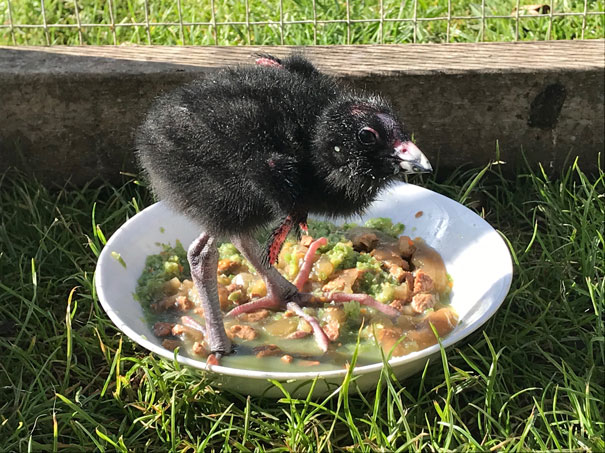
Fledglings
Fully feathered baby birds on the ground that can hop, flutter and are not scared of people or pets.
Many birds go through a totally normal but nonetheless awkward stage when they fledge. They leave the nest before they are able to fly properly and can be found hopping around on the ground. Parent birds will come by with food but will likely not be around all the time. As long as the bird is uninjured and the parents are still around, please do not take these babies! The best place for them to be is with their family.
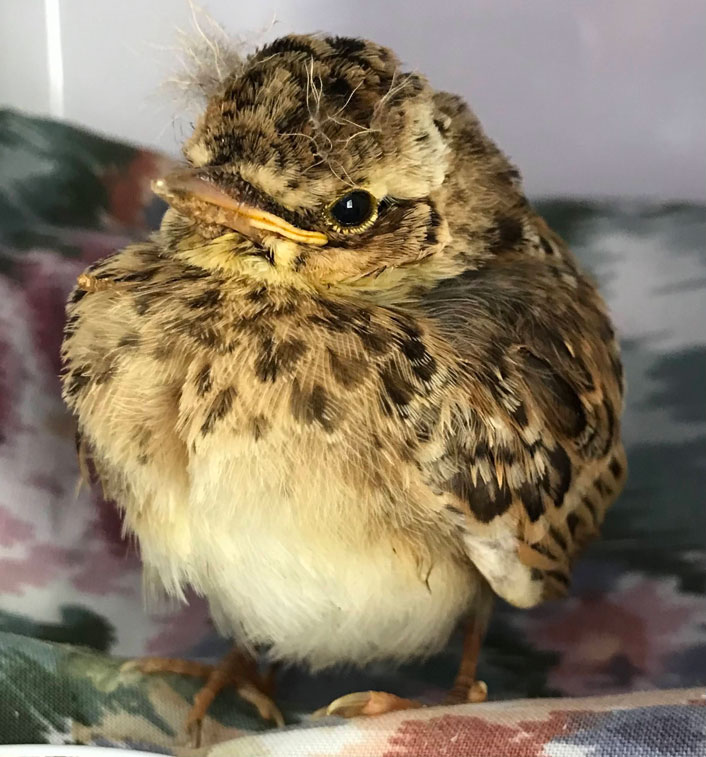
Precocial chicks
These are baby birds like ducklings, quails, pheasants, dotterels, plovers – that once hatched are up and running and feeding themselves, obviously under parental supervision. When lost or abandoned, they are an easy target for predators and will not survive on their own, still needing their mothers’ warmth and protection.
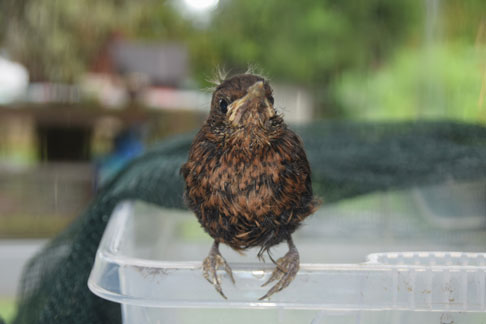
Cats
You can help all birds by keeping cats at home or under supervision. This is a vulnerable time for chicks, as these birds are taking their first steps into the big wide world and can be quite oblivious to danger. If any cat interaction occurs, the bird needs to be taken to a rehabilitator or Vet as soon as possible to start antibiotic treatment. Please let them know if the bird you are bringing in has experienced cat interaction, so that we can provide the correct treatment.
Contact your nearest Veterinary Clinic if you have a baby bird that needs care. Caring for a baby bird is time consuming and needs commitment and knowledge; remember a DOC Permit is needed to care for native species.
Coromandel Native Birds (Former Kūaotunu Bird Rescue Trust) is now actively working with the Department of Conservation offering advice and caring for protected species only.
Coromind: Coromandel’s Collaborative Magazine

Help us take Coromind Magazine to new heights by becoming a member. Click here
Change the Weather for Your Business: Advertise with Us.
Advertise your business in the whole Hauraki Coromandel in the coolest Coromandel Art Magazine, from Waihi Beach/Paeroa /Thames up to the Great Barrier Island.
Advertise Smarter, Not Harder: Get in Touch




